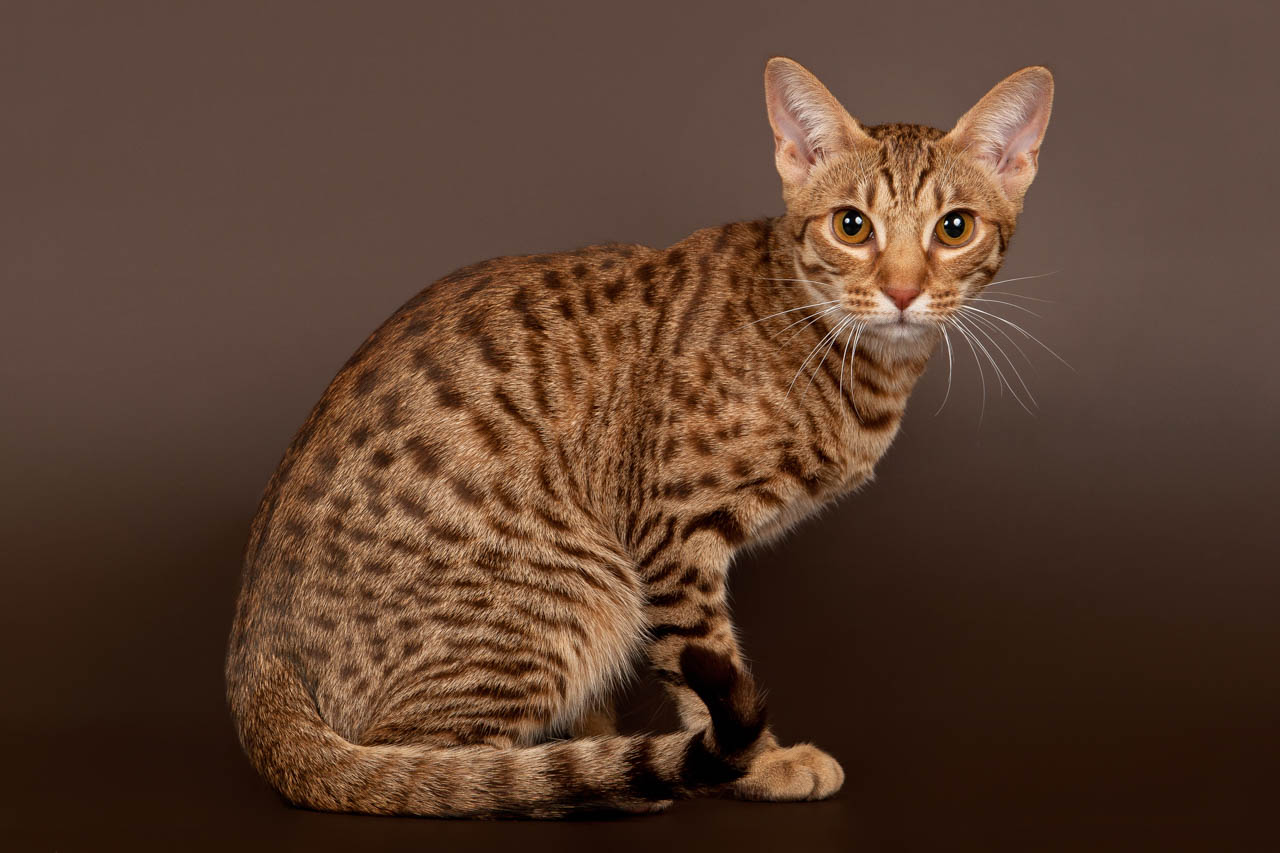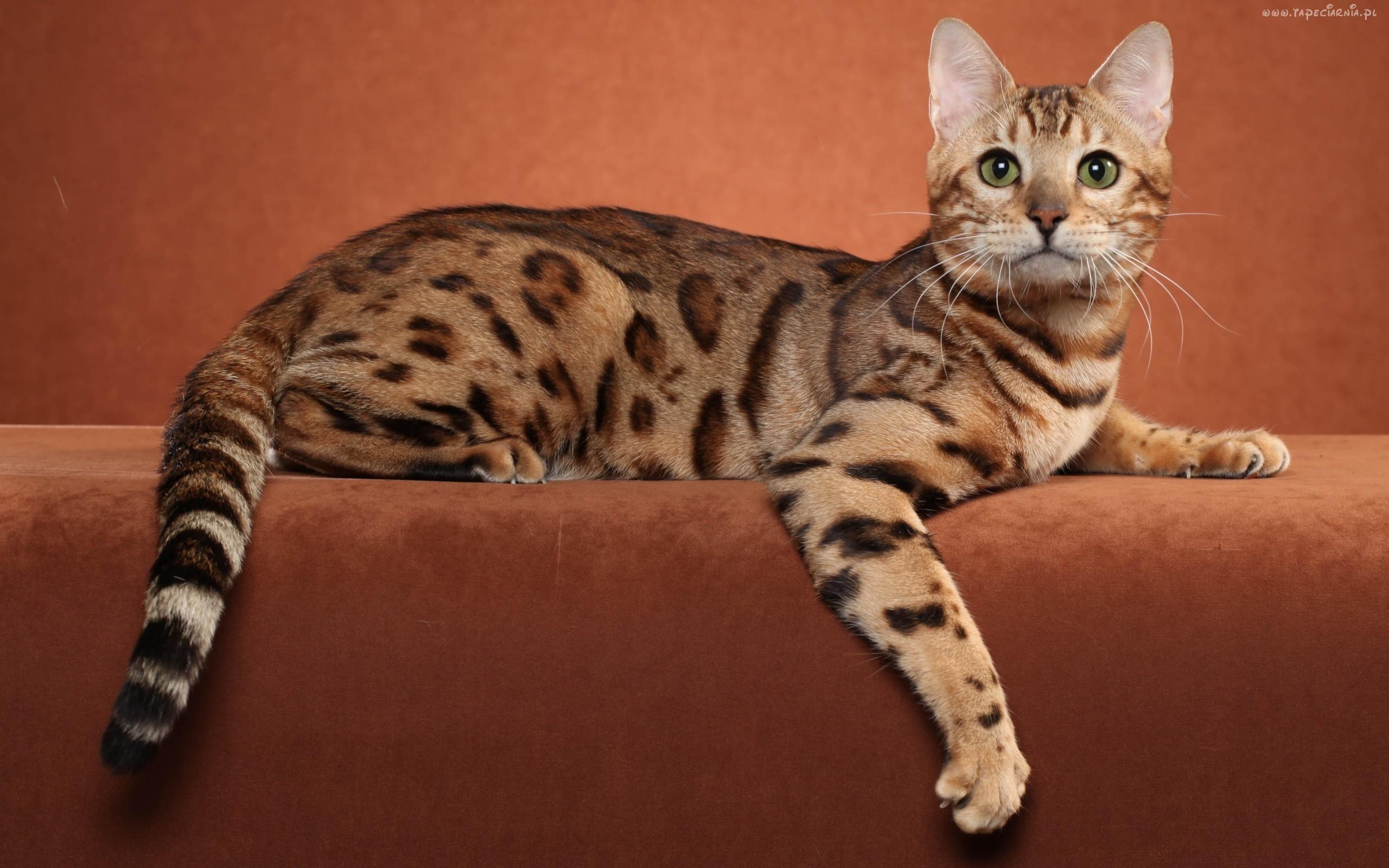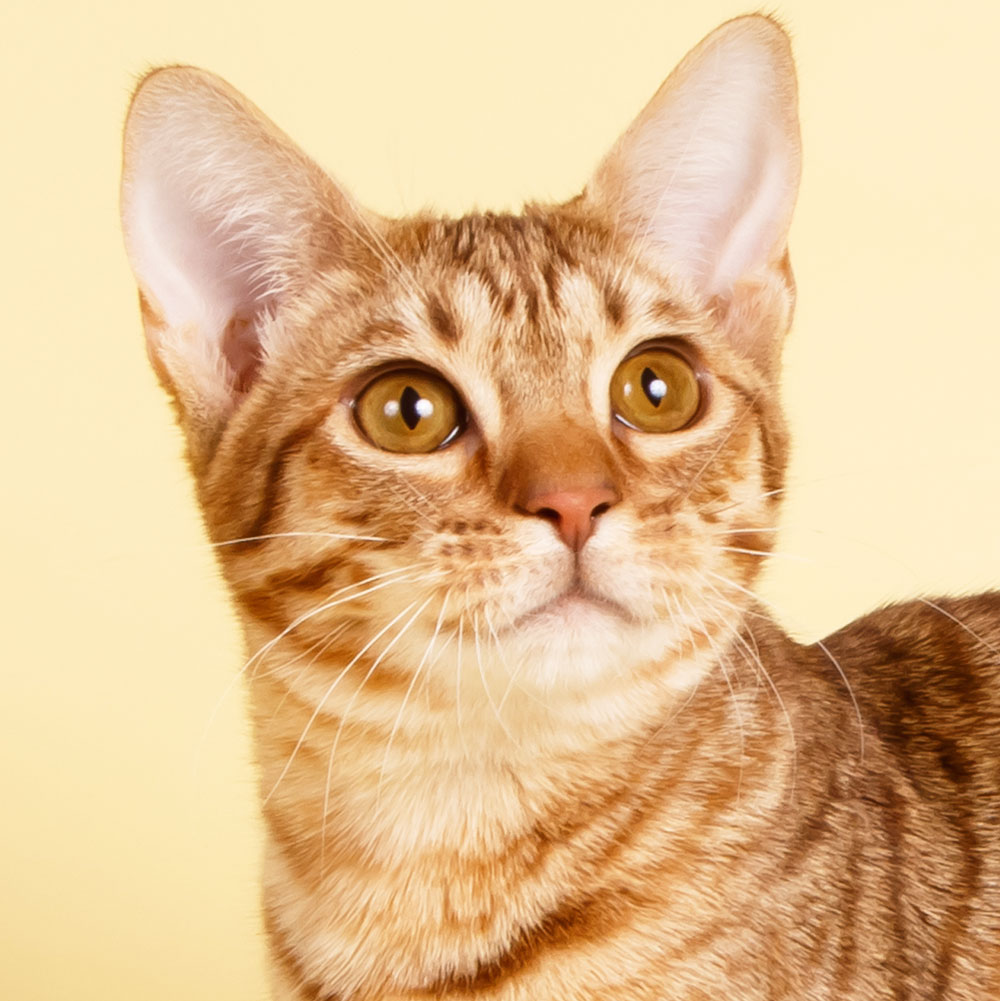Ocicat: The Wild-Looking but Gentle Domestic Companion

History of the Ocicat
The Ocicat is a domestic breed that was intentionally created to resemble a wild ocelot but has no wild ancestry. The breed originated in 1964 when breeder Virginia Daly in the United States crossed a Siamese with an Abyssinian, producing a kitten with an unexpected spotted coat. Later, the breed was refined by introducing the American Shorthair, which added muscle tone and silver coloration.
The Ocicat was officially recognized by The Cat Fanciers’ Association (CFA) in 1987 and is now one of the most admired spotted cat breeds worldwide.
Popularity of the Ocicat
Due to its exotic, wild appearance and friendly personality, the Ocicat has become a popular breed among cat enthusiasts who want a spotted cat without the unpredictable nature of wild hybrids. It is especially popular in the United States and Europe.
Physical Traits of the Ocicat
The Ocicat is a medium-to-large, muscular cat with distinct spots that give it a wild feline appearance.
• Coat: Short, sleek, and satiny, with a natural sheen.
• Colors: Found in twelve recognized colors, including tawny, chocolate, cinnamon, blue, lavender, fawn, and silver variations.
• Size: Medium to large, weighing between 8 to 15 pounds.
• Head & Expression: Wedge-shaped head with large, almond-shaped eyes that come in a variety of shades except blue.
• Ears: Medium to large, sometimes with lynx-like tufts.
• Tail: Long and slightly tapered, often with dark rings leading to a solid tip.
• Body: Athletic and muscular, with long legs and a deep chest, designed for agility.
Behavioral Traits of the Ocicat
The Ocicat is known for its social, intelligent, and playful nature, making it an ideal companion for active households.
• Highly Social: Loves human interaction and follows owners around the house.
• Extremely Intelligent: Learns tricks, enjoys interactive toys, and can be leash-trained.
• Energetic and Playful: Loves climbing, running, and playing fetch.
• Loyal and Affectionate: Forms deep bonds with family members and thrives on attention.
• Talkative but Not Overly Loud: Communicates with soft chirps and meows, unlike the chatty Siamese.

Why Choose an Ocicat?
For those looking for a wild-looking, social, and playful companion, the Ocicat is an excellent choice.
• Perfect for Active Families: Enjoys interactive play and exploring.
• Low Grooming Needs: Short coat requires minimal brushing.
• Highly Intelligent and Trainable: Can learn fetch, leash-walking, and agility exercises.
• Good for Multi-Pet Homes: Gets along well with other cats and even dogs.
• Wild Appearance, Domestic Personality: Looks like an exotic wild cat but has a gentle and affectionate temperament.
Caring for Your Ocicat
The Ocicat requires regular playtime, socialization, and a balanced diet to stay happy and healthy.
• Grooming: Weekly brushing helps maintain a glossy coat.
• Exercise: Needs daily activity, including chasing, climbing, and interactive play.
• Mental Stimulation: Enjoys puzzle toys, training exercises, and scratching posts.
• Nutrition: A high-protein diet is essential for muscle tone and energy levels.
• Companionship: Prefers interactive households where they get plenty of attention.
Health Considerations
The Ocicat is generally a healthy breed, but some concerns include:
• Hypertrophic Cardiomyopathy (HCM): A genetic heart condition that can be screened for in breeding programs.
• Obesity Prevention: Due to their active nature, maintaining a healthy weight through play and diet is important.
• Dental Issues: Some Ocicats may require regular dental care to prevent plaque buildup.
• Sensitive Digestion: High-quality food is recommended to avoid stomach sensitivities.

Comparisons to Other Breeds
Compared to the Bengal, the Ocicat has no wild ancestry, making it more predictable and domesticated in behavior. Unlike the Savannah Cat, which is a hybrid of a wild Serval, the Ocicat is entirely domestic but has a similar wild appearance.
Compared to the Abyssinian, which also has an active and intelligent nature, the Ocicat is more muscular and has a spotted pattern rather than a ticked coat.
Is the Ocicat Right for You?
The Ocicat is perfect for cat lovers who want an active, social, and intelligent pet with an exotic look. If you enjoy playful interactions, training, and a cat that follows you around like a dog, the Ocicat will be a wonderful choice.
However, if you prefer a quiet, low-energy, or more independent cat, this breed may not be the best fit.
Ready to Welcome an Ocicat?
United Pet Club is here to help you find the perfect Ocicat companion. Whether you're looking to adopt or connect with trusted breeders, we provide valuable resources to guide you every step of the way.
Explore our platform to learn more about Ocicats, their history, and how to care for them. Contact United Pet Club today to start your journey with this beautiful and playful feline!
